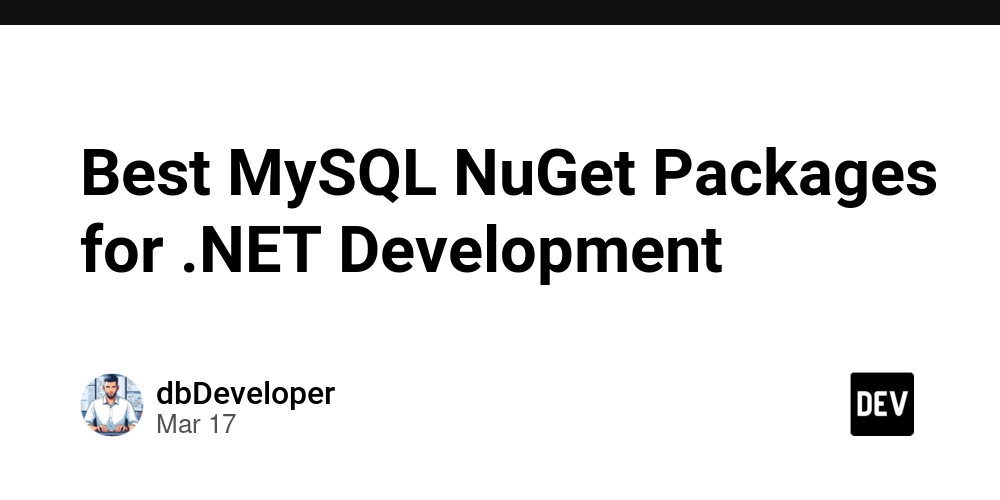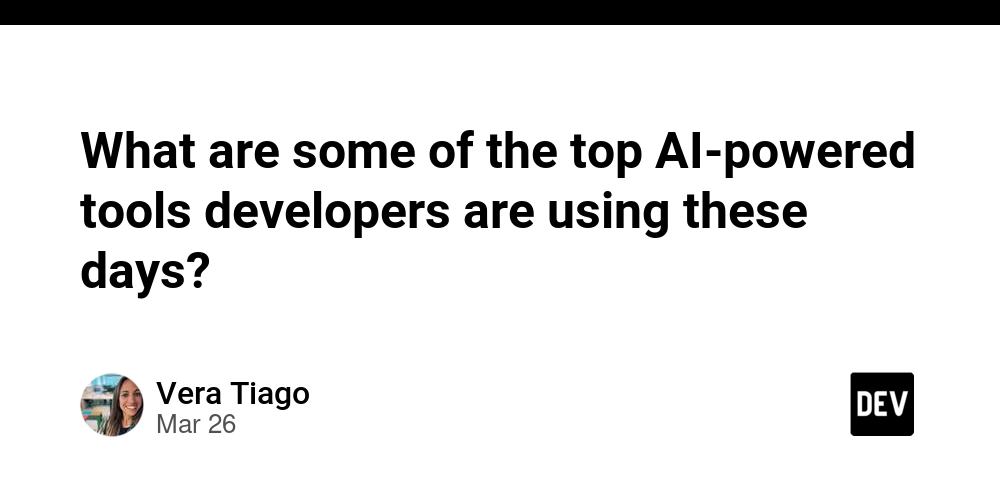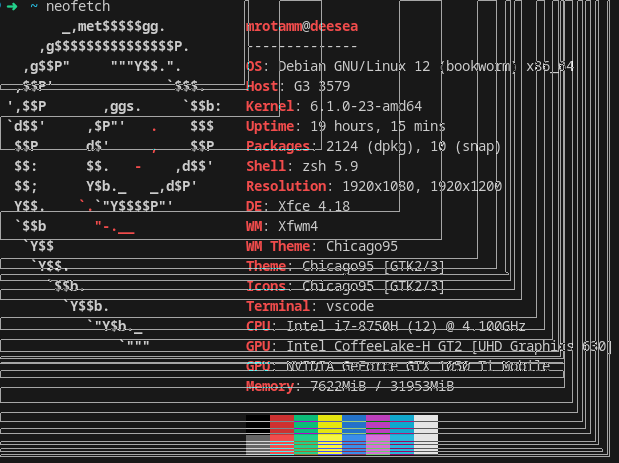Unlocking the Potential of GitHub Sponsors for Developers
Abstract In this post, we explore how GitHub Sponsors is reshaping the open-source ecosystem by offering financial support and growth opportunities to developers worldwide. We delve into its background, core concepts, practical applications, challenges, and future outlook. By examining case studies, comparing funding models, and linking to key resources—from the Original Article to external expert posts—we illustrate how this initiative is democratizing support and empowering innovation in software development. Introduction Open-source projects have long driven innovation in technology through collaboration, creativity, and community. Yet, financial difficulties and sustainability challenges have often hindered developers who contribute tirelessly to these projects. GitHub Sponsors emerges as a game-changing funding model, allowing developers to receive financial backing directly from users, corporations, and fellow developers. In this post, we discuss why GitHub Sponsors matters and how it transforms the open-source landscape. GitHub Sponsors not only bridges the gap between creators and supporters but also aligns corporate and community goals. This model offers unprecedented transparency and flexibility, empowering developers to define their sponsorship tiers and manage budgets effectively. With clear benefits for individual developers and the broader software ecosystem, understanding this funding method is essential for anyone involved in technology innovation. Background and Context A Brief History of Open-Source Funding In the early days of open source, projects often relied on grants, individual donations, or corporate sponsorships as a side stream. However, these models sometimes left projects underfunded while also lacking transparency. As the industry advanced, more sustainable funding methods were needed. Enter GitHub Sponsors—a direct financial support system integrated into the world’s leading code repository hosting service. By enabling individuals and companies to fund projects of their choice, GitHub Sponsors opens up a new era in funding for open-source initiatives. Definitions and Ecosystem Before diving further, let’s clarify some key terms: GitHub Sponsors: A program that allows developers to receive recurring payments from sponsors, optimizing financial accessibility. Open-Source Development: A collaborative model where source code is shared freely, enabling innovation, community support, and rapid iterations. NFTs in Open Source: While not directly linked to GitHub Sponsors, recent discussions on the ecosystem include topics such as Why Are NFTs Valuable in funding and rewarding contributions. Tokenization for Sustainability: Projects like Sustainability of Open Source through Tokenization illustrate new methods for ensuring long-term project viability through digital tokens. Ecosystem Context Today’s ecosystem intertwines development, blockchain technology, and real-time community funding. Financial support is no longer a mere extra; it is a core part of sustainability. This evolution is supported by platforms such as Open Source Sponsorship and learning resources on How Does GitHub Sponsors Work. Combined, these resources offer a robust framework for understanding and leveraging modern funding methods. Core Concepts and Features Empowerment and Flexibility One of the key benefits of GitHub Sponsors is the power it gives to individual developers. Unlike traditional funding models, GitHub Sponsors enables contributors to: Define Sponsorship Tiers: Allowing creators to set different levels of rewards. Maintain Creative Autonomy: Developers choose how to allocate funds without restrictive terms. Direct Community Support: Financial backing comes straight from communities, bypassing intermediaries. Enhancing Project Sustainability Sustainability is a core feature of GitHub Sponsors. With steady financial support, projects can invest in infrastructure, marketing, and further development. Crucial points include: Long-term Funding Stability: Regular contributions ensure that maintenance and innovation can continue unhindered. Enhanced Accountability: Transparent sponsorships foster trust between developers and their supporters. Broader Access: Developers worldwide benefit from a democratized support network that narrows global financial inequalities. Corporate and Community Alignment GitHub Sponsors not only assists individual developers but also benefits companies. Corporations supporting projects can: Align Their Goals: Enhance community engagement and benefit from collaborative innovation. Promote Their Brand: Associate with innovative open-source projects and demonstrate social responsibility. Collaborate on R&D: Gain access to emerging technologies while influencing development trends. Integration with Blockchain and NFTs While GitHub Sp
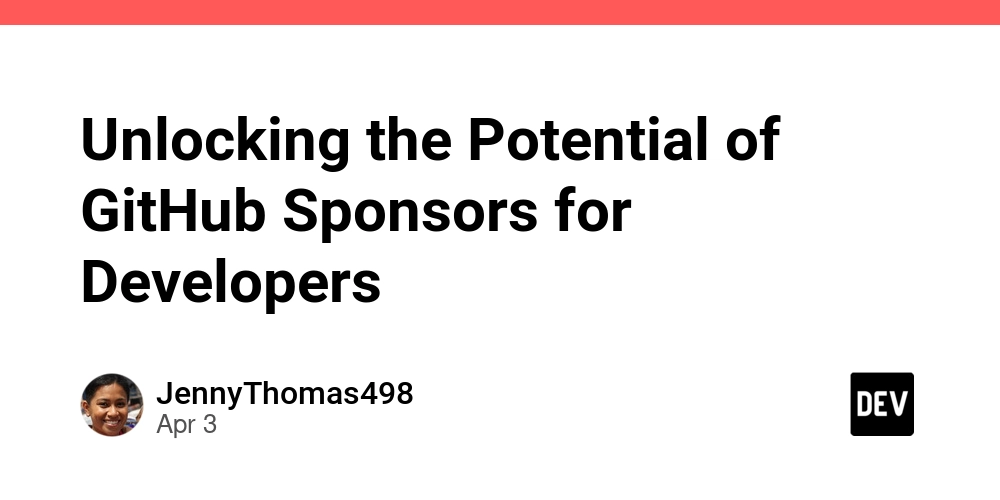
Abstract
In this post, we explore how GitHub Sponsors is reshaping the open-source ecosystem by offering financial support and growth opportunities to developers worldwide. We delve into its background, core concepts, practical applications, challenges, and future outlook. By examining case studies, comparing funding models, and linking to key resources—from the Original Article to external expert posts—we illustrate how this initiative is democratizing support and empowering innovation in software development.
Introduction
Open-source projects have long driven innovation in technology through collaboration, creativity, and community. Yet, financial difficulties and sustainability challenges have often hindered developers who contribute tirelessly to these projects. GitHub Sponsors emerges as a game-changing funding model, allowing developers to receive financial backing directly from users, corporations, and fellow developers. In this post, we discuss why GitHub Sponsors matters and how it transforms the open-source landscape.
GitHub Sponsors not only bridges the gap between creators and supporters but also aligns corporate and community goals. This model offers unprecedented transparency and flexibility, empowering developers to define their sponsorship tiers and manage budgets effectively. With clear benefits for individual developers and the broader software ecosystem, understanding this funding method is essential for anyone involved in technology innovation.
Background and Context
A Brief History of Open-Source Funding
In the early days of open source, projects often relied on grants, individual donations, or corporate sponsorships as a side stream. However, these models sometimes left projects underfunded while also lacking transparency. As the industry advanced, more sustainable funding methods were needed.
Enter GitHub Sponsors—a direct financial support system integrated into the world’s leading code repository hosting service. By enabling individuals and companies to fund projects of their choice, GitHub Sponsors opens up a new era in funding for open-source initiatives.
Definitions and Ecosystem
Before diving further, let’s clarify some key terms:
- GitHub Sponsors: A program that allows developers to receive recurring payments from sponsors, optimizing financial accessibility.
- Open-Source Development: A collaborative model where source code is shared freely, enabling innovation, community support, and rapid iterations.
- NFTs in Open Source: While not directly linked to GitHub Sponsors, recent discussions on the ecosystem include topics such as Why Are NFTs Valuable in funding and rewarding contributions.
- Tokenization for Sustainability: Projects like Sustainability of Open Source through Tokenization illustrate new methods for ensuring long-term project viability through digital tokens.
Ecosystem Context
Today’s ecosystem intertwines development, blockchain technology, and real-time community funding. Financial support is no longer a mere extra; it is a core part of sustainability. This evolution is supported by platforms such as Open Source Sponsorship and learning resources on How Does GitHub Sponsors Work. Combined, these resources offer a robust framework for understanding and leveraging modern funding methods.
Core Concepts and Features
Empowerment and Flexibility
One of the key benefits of GitHub Sponsors is the power it gives to individual developers. Unlike traditional funding models, GitHub Sponsors enables contributors to:
- Define Sponsorship Tiers: Allowing creators to set different levels of rewards.
- Maintain Creative Autonomy: Developers choose how to allocate funds without restrictive terms.
- Direct Community Support: Financial backing comes straight from communities, bypassing intermediaries.
Enhancing Project Sustainability
Sustainability is a core feature of GitHub Sponsors. With steady financial support, projects can invest in infrastructure, marketing, and further development. Crucial points include:
- Long-term Funding Stability: Regular contributions ensure that maintenance and innovation can continue unhindered.
- Enhanced Accountability: Transparent sponsorships foster trust between developers and their supporters.
- Broader Access: Developers worldwide benefit from a democratized support network that narrows global financial inequalities.
Corporate and Community Alignment
GitHub Sponsors not only assists individual developers but also benefits companies. Corporations supporting projects can:
- Align Their Goals: Enhance community engagement and benefit from collaborative innovation.
- Promote Their Brand: Associate with innovative open-source projects and demonstrate social responsibility.
- Collaborate on R&D: Gain access to emerging technologies while influencing development trends.
Integration with Blockchain and NFTs
While GitHub Sponsors is primarily a funding tool, the open-source ecosystem increasingly intersects with blockchain technology. This integration provides:
- Enhanced Transparency: Blockchain records ensure that sponsorships are verifiable and transparent.
- Digitally Native Rewards: With initiatives such as The Role of NFTs in Open Source Rewards, developers can receive unique tokens that symbolize their contribution.
- New Revenue Streams: Tokenization projects, as discussed in Sustainability of Open Source through Tokenization, provide additional models for financial stability. Below is an illustrative table summarizing the core concepts and features of GitHub Sponsors:
| Feature | Description | Benefits |
|---|---|---|
| Empowerment & Flexibility | Developers set sponsorship tiers and retain creative control | Personalized income model |
| Project Sustainability | Regular financial support secures long-term project viability | Continuous development and maintenance |
| Corporate-Community Alliance | Firms support projects aligning with their innovation goals | Improved brand image and innovative growth |
| Blockchain Integration | Transparent sponsorship records using blockchain technology | Enhanced trust through verifiability |
| NFT Rewards | Digital tokens supplement traditional funding mechanisms | New revenue streams and digital asset integration |
Applications and Use Cases
Real-World Examples
The evolution of GitHub Sponsors has already produced several compelling applications in open source funding:
- Small-Sized Developer Projects: Independent developers using GitHub Sponsors can scale projects that might otherwise be in peril due to cash flow limitations. Receiving regular contributions helps them invest in their codebase and take on larger challenges.
- Corporate-Funded Initiatives: Many larger companies now sponsor open-source projects that align with their business interests. For example, a technology company might support a project related to cybersecurity tool development—a synergy that benefits both parties.
- Blockchain and Tokenization Ventures: Some projects have begun exploring the convergence of GitHub Sponsors and blockchain tokenization. By integrating NFT rewards, developers can provide unique digital assets to sponsors, as seen in the growing intersection with projects focused on NFT rewards for open source.
Practical Example – A Developer’s Journey
Consider a developer working on an innovative machine learning library. Initially, the project struggles to gain traction due to limited resources. By enrolling in GitHub Sponsors, the developer is able to:
- Set up multiple sponsorship tiers (for individuals, small startups, or large enterprises).
- Earn a steady monthly income while retaining full creative control.
- Leverage the financial support to invest in advanced features, improved documentation, and even experiment with integrating blockchain for data validation. This route not only enhances the project’s technical capabilities but also builds a loyal community of contributions and collaborations.
Use Cases in the Corporate World
Corporations often recognize the value of open-source projects as platforms for innovation. Companies may sponsor development initiatives to ensure that they have:
- Custom Features: Tailored solutions that align with their internal processes.
- Security Improvements: Open-source projects often undergo extensive public scrutiny, enhancing the security of corporate systems.
- Brand Image Enhancement: Associating with cutting-edge projects informs stakeholders of their commitment to technological innovation. A bullet list of the corporate advantages includes:
- Improved community engagement
- Access to public expertise
- Increased innovation driven by diverse ideas
- Enhanced reputation as a company that supports open knowledge
Challenges and Limitations
Despite its transformative nature, GitHub Sponsors also faces several challenges:
Technical and Administrative Challenges
- Platform Limitations: Some developers find that the user interface lacks advanced customization for sponsorship tiers, which could limit creativity in how benefits are described or packaged.
- Payment Processing: Varying regulations and international transactions sometimes complicate payment processes. Developers from certain countries may not have immediate access to sponsored funds due to compliance issues.
Adoption and Cultural Barriers
- Awareness Gap: Not every developer or company knows about the benefits of GitHub Sponsors. Increasing general awareness in the open-source community remains a work in progress.
- Skepticism on Sustainability: Some stakeholders question whether sponsorships will be sufficient to provide long-term financial security compared to other funding methods like grants or venture capital.
External Influences
While GitHub Sponsors provides a strong funding foundation, external ventures such as emerging blockchain technologies and NFT incentives require continuous integration efforts. This integration, though promising, also brings technical and regulatory uncertainties.
Future Outlook and Innovations
The future of GitHub Sponsors looks bright with several innovations on the horizon:
Enhanced Platform Features
- Improved Customization Options: Future updates could allow developers to better tailor sponsorship tiers and integrate dynamic benefits for sponsors.
- Streamlined Payment Systems: Addressing global regulatory hurdles by partnering with international payment providers may offer a smoother, more consistent transaction process.
Integration with Emerging Technologies
- Blockchain and NFT Rewards: As the open-source community increasingly embraces blockchain, GitHub Sponsors may integrate more advanced features. For instance, sponsoring developers could also offer NFT rewards as cultural tokens, as highlighted in The Role of NFTs in Open Source Rewards.
- AI-Driven Insights: Leveraging data analytics and AI could provide developers with better insights into how sponsorship contributions correlate with project growth and impact.
Expanded Corporate Collaborations
Companies are likely to continue aligning their corporate social responsibility (CSR) initiatives with open-source projects. This trend not only supports innovation but also builds healthier ecosystems in the tech landscape. Such collaborations could lead to innovative revenue-sharing models where corporations also benefit from downstream innovations.
Community Empowerment and Global Reach
The democratization of financial support in open-source software means that contributors from diverse geographies can now participate equally. As more communities and organizations adopt GitHub Sponsors, we may see the rise of new programming paradigms and frameworks that reflect a global pool of talent.
Summary
GitHub Sponsors has emerged as a vital tool for ensuring the sustainability and growth of open-source projects. By addressing the long-standing challenge of inadequate funding through flexible sponsorship tiers and direct financial support, it empowers both individual developers and corporate partners alike. Key takeaways include:
- Empowerment: Developers have control over how they manage sponsorship funds, ensuring creativity and autonomy.
- Sustainability: Regular contributions provide a stable income stream, vital for long-term project maintenance.
- Alignment: Both corporate and community goals are served as companies recognize the importance of open-source innovation.
- Innovation: Integration with blockchain and NFTs paves the way for new funding models and advanced transparency.
Conclusion
GitHub Sponsors is not just a funding mechanism—it is a catalyst for collaboration, innovation, and growth in the open-source sphere. For developers, it is a pathway to both professional and creative freedom. For corporations, it is an opportunity to engage with a dynamic community and shape the future of technology.
If you’re a developer or a company leader interested in harnessing the power of direct community funding, now is the time to explore GitHub Sponsors and the innovative models surrounding it. Check out the Original Article for detailed insights, and learn more about related topics such as Open Source Sponsorship and How Does GitHub Sponsors Work.
For further reading and community perspectives, you can explore articles on Dev.to such as:
- Navigating Open Source Project Sponsorship: A Guide for Success
- Unveiling the Impact of the Sleepycat License: Balancing Openness and Fair Code Principles
- Sustaining the Backbone of Technology: Open Source Funding Platforms These resources provide additional context on how financial models in open-source development are evolving and the benefits they bring to all stakeholders. We are witnessing a fundamental shift in how open-source projects are financed—a shift that empowers developers, fosters community collaboration, and truly democratizes the world of software development. Get involved, become a sponsor, or launch your project on GitHub Sponsors. Your contribution could be the spark that drives the next breakthrough in technology. Embrace the future of sustainable development. Support innovation. Build a better, more inclusive tech ecosystem with GitHub Sponsors.












































































































































































![[The AI Show Episode 142]: ChatGPT’s New Image Generator, Studio Ghibli Craze and Backlash, Gemini 2.5, OpenAI Academy, 4o Updates, Vibe Marketing & xAI Acquires X](https://www.marketingaiinstitute.com/hubfs/ep%20142%20cover.png)














































































































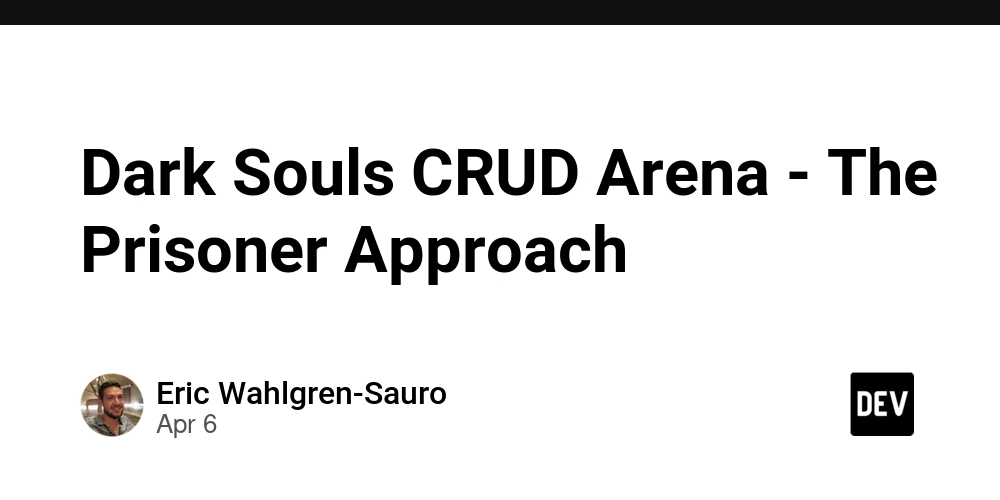
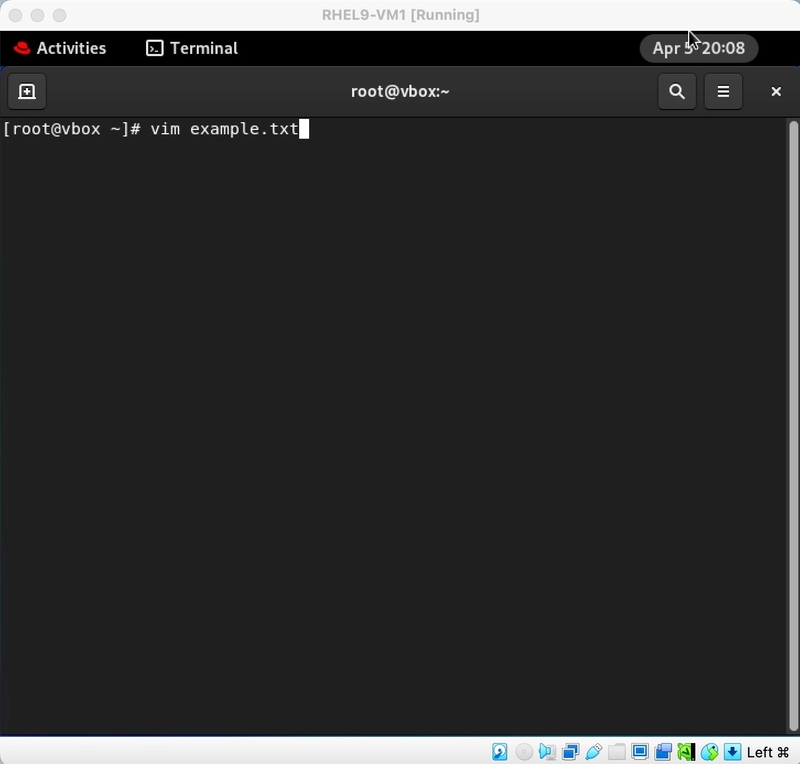
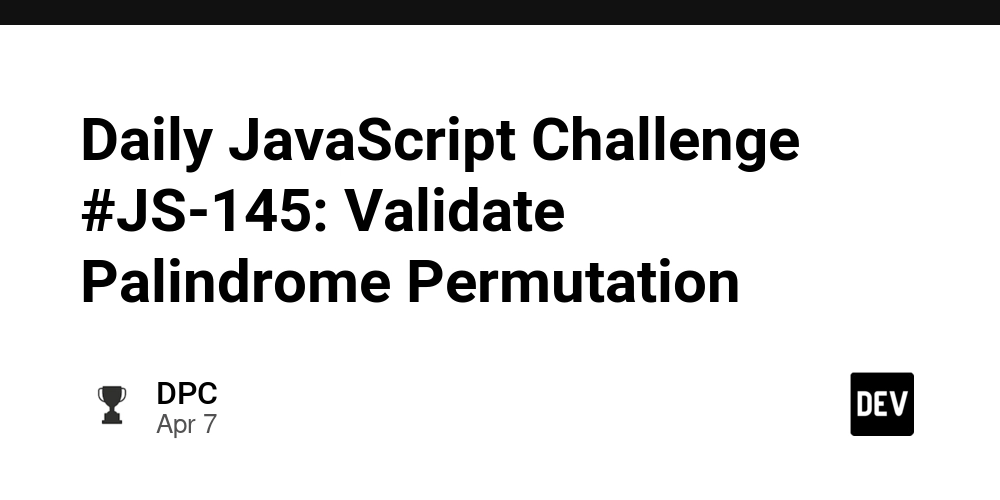










![[DEALS] The Premium Learn to Code Certification Bundle (97% off) & Other Deals Up To 98% Off – Offers End Soon!](https://www.javacodegeeks.com/wp-content/uploads/2012/12/jcg-logo.jpg)


![From drop-out to software architect with Jason Lengstorf [Podcast #167]](https://cdn.hashnode.com/res/hashnode/image/upload/v1743796461357/f3d19cd7-e6f5-4d7c-8bfc-eb974bc8da68.png?#)








































































































.png?#)

































_Christophe_Coat_Alamy.jpg?#)
 (1).webp?#)





































































































![Apple Considers Delaying Smart Home Hub Until 2026 [Gurman]](https://www.iclarified.com/images/news/96946/96946/96946-640.jpg)
![iPhone 17 Pro Won't Feature Two-Toned Back [Gurman]](https://www.iclarified.com/images/news/96944/96944/96944-640.jpg)
![Tariffs Threaten Apple's $999 iPhone Price Point in the U.S. [Gurman]](https://www.iclarified.com/images/news/96943/96943/96943-640.jpg)

































































































































